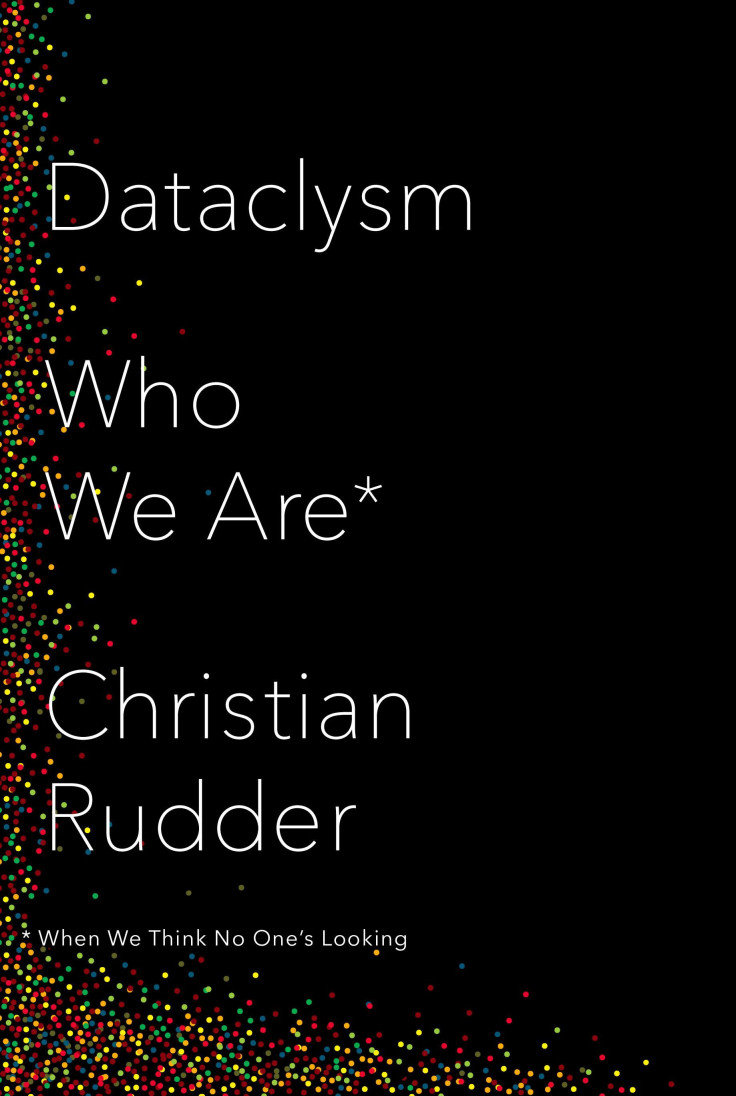'Dataclysm': Discussing The Digital You With OkCupid Co-Founder Christian Rudder

As a question, "Who are we?" is a pretty difficult one to answer, but it may be getting easier because of the Internet. OkCupid co-founder Christian Rudder is pondering that same question in "Dataclysm: Who We Are (When We Think No One's Looking)" and is using big data, collected from his site, along with reports from Google, Facebook and other social sites, to explore identity, digitally and without human bias.
The complete answer may not be revealed for another five or so years, said Rudder. "One of the blind spots in all this data is that, right now, it's not that great at detecting change because we've only had a few years of it," he said in an interview with International Business Times. "Even five years is probably the amount of time that these technologies have been as thorough as they are now. Five years is nothing in any sort of historical time frame."
While it may not be a complete picture, there is enough data to find some interesting things about who we are. It's too early to tell if identity, or people's understanding of who they are, has changed but there are some early trends Rudder has spotted. "The change is very hard to tease out, but I think people are more about finding, it feels like to me, what they like rather than why they necessarily believe in. Of course, there is the “Like” button which captures that directly but what people tweet out, article links and all that. I think that kind of contributes to an era of cynicism but maybe apathy is not always the best thing," Rudder says.
Mass surveillance and, more recently, the iCloud hack, have emphasized the need for privacy in an increasingly digital world. Apps or websites all take a bit of data that companies use, either to sell ads or improve the user experience, but there are ways that people can enjoy the Internet and maintain a sense of privacy, Rudder said.
"I think Snapchat and its kind of rise, especially with people who are younger and therefore more tech savvy, is an excellent example of that. Some people, who want to be connected but not broadcast everything to everyone, those are great alternatives. There are more options, there is more savvyness, people understand that if you tell Facebook you're on vacation, Facebook doesn't care one way or the other, but someone else can come and see that, 'Hey, you're on vacation, you're not home, maybe I'll go rob their house' or some type of extreme thing," Rudder said. "Before, that was one of the early, 'Oh, can you believe this' type of stories around Facebook in 2008, but now people understand you shouldn't do that. I do believe people are learning to use things in more sophisticated ways."
Rudder openly admitted to experimenting on OkCupid users in a July blog post. That revelation led to plenty of criticism, as well as some praise, but Rudder explained that it was to make the dating website better and to prove its algorithm worked. "Dataclysm" has also received a bit of criticism, due to the extent of mass surveillance and the lack of analysis of the collected data, notes the Verge.
Despite the criticism from the media, Rudder says OkCupid users were not too upset. "Users expect a certain level of analysis. We get very, very few complaints about any of that stuff. For the most part, people complain about each other or the credit card processing doesn't work or whatever, but I think, since the experiment post went up, we've had 5 million people log in and maybe, low 2-digit, complaints about it," Rudder said.
In "Dataclysm," Rudder explains, race, sexuality and self-identification, something he was doing on the OkTrends blog for years. In one chapter, "The Confounding Factor," Rudder explores how race affects the number of messages and rating a user receives. The discussion is also available on OkTrends, and while Rudder was not too surprised by the results, he was surprised by the consistency and pervasiveness of the results.
Rudder had a simple bit of advice for how people should express their identity. "It sounds like a cliché, but people need to be themselves. People don't use these things to have long-distance chats, or sit around and talk to each other online like they used to in chat rooms back in the day," Rudder said. "People want to get together in person and it does you no good to pretend, in my case I'm 5 feet 10 inches, and tell someone I'm 6 feet tall or 6 feet 3 inches, or I'm super athletic or any of that stuff. It just doesn't get you anywhere, there's a reckoning when you meet that person in-person."
© Copyright IBTimes 2024. All rights reserved.






















